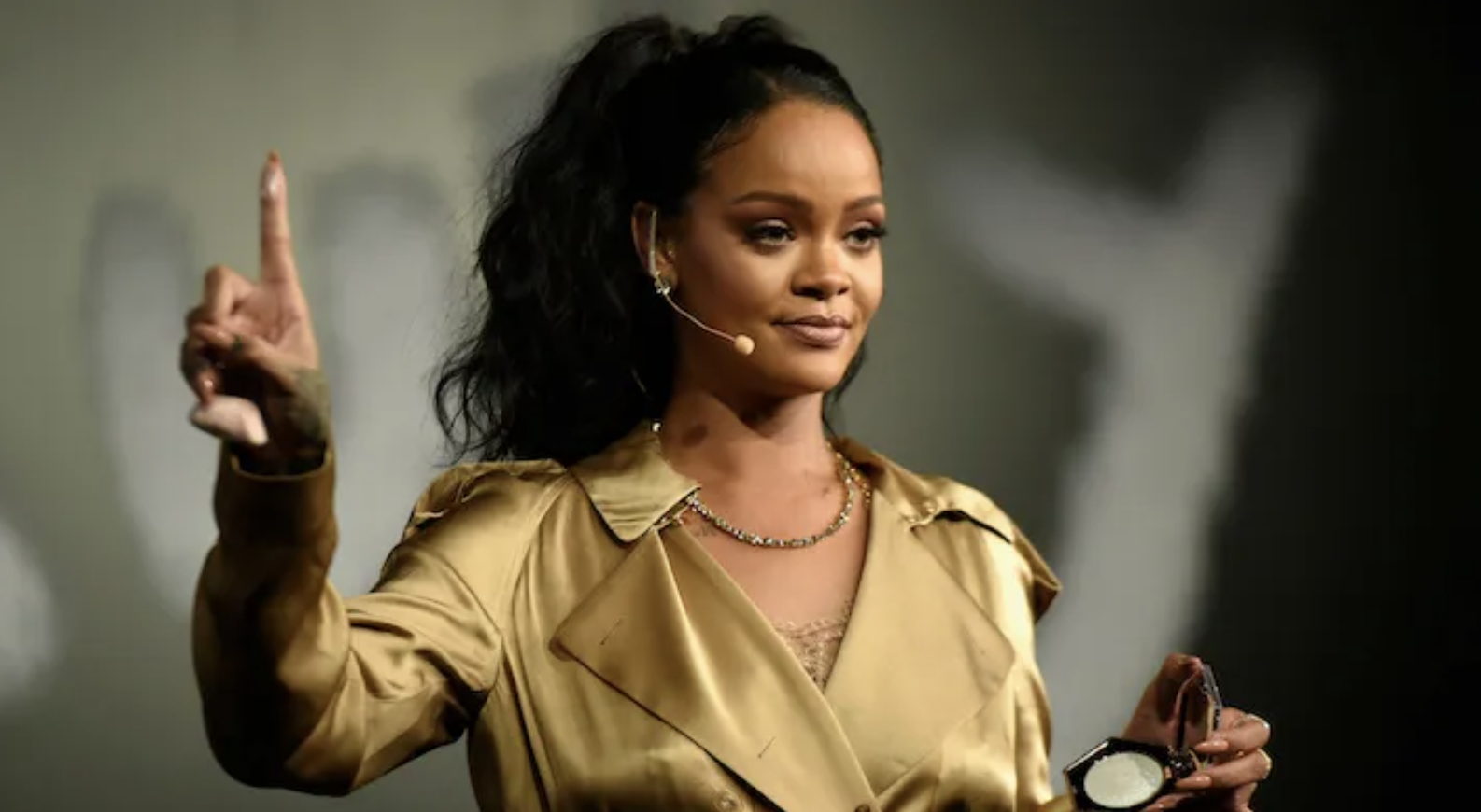ImpactAlpha, Feb. 17 – Years before this week’s elegant and understated Super Bowl appearance, Robyn “Rihanna” Fenty turned down the NFL’s invitation to headline the world’s biggest stage. Her choice was an act of solidarity with quarterback Colin Kaepernick, who was sidelined after he took a knee to protest racial injustice.
This year, she accepted, with Jay-Z’s Roc Nation as executive producer and the opportunity to go back-to-back with last year’s headliners, including Dr. Dre, Snoop Dogg and Mary J Blige. “It’s powerful to break those doors, and have representation at such a high, high level and a consistent level,” Rihanna told British Vogue.
The Fenty Effect
In music and business, the Barbados-born megastar has led with representation. Fenty Beauty, the $2.8 billion cosmetics business she founded with luxury goods brand LVMH, opened new markets with 40 shades of foundation.
“Suddenly beauty houses – niche, establishment and those in between – began extending their shade ranges to accommodate a wider variety of skin tones,” Funmi Fetto wrote in British Vogue.
Along with 50% of Fenty Beauty and 30% of Savage X Fenty, a separate billion-dollar lingerie company, the nine-time Grammy winner owns the master recordings of her music.
Representation and justice
As a mom (with another on the way), Rihanna is thinking more about the world she’ll leave her kids.
Her philanthropy, the Clara Lionel Foundation, supports climate resilience and justice projects in the U.S. and Caribbean focused on and led by women, youth, Black, Indigenous, people of color and LGBTQIA+ communities (the foundation last month joined Ford Foundation and others calling for more support for Black feminist organizations).
Among her venture investments is Partake Foods, a Black, Asian-owned brand that sells allergen-free cookies.
Rihanna is taking on the challenge once laid down by Marian Wright Edelman of the Children’s Defense Fund: “It’s hard to be what you can’t see.”











